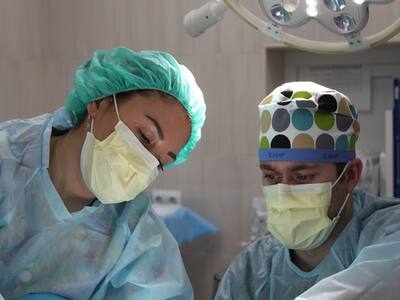
The study showed that many of the developments that are propelling the system forward are also a source of challenges that patients and clinicians experience.
Over years health system has surmounted many obstacles across the globe. It has made significant improvements in the health outcomes of its people. While the way healthcare systems work across geographies differs from country to another but there are some common challenges that affects globally. With evolving systems, there are new age problems that affect the people at the centre of healthcare system, that is patients and doctors.
GE HealthCare, a leading medical technology, pharmaceutical diagnostics, and digital solutions innovator, released Reimagining Better Health, a qualitative and quantitative study that amplifies the perspectives and needs of people at the centre of healthcare patients and clinicians. The study aims to help inform a path forward as stressors such as burnout, workforce attrition and patient backlogs test the resiliency of health systems.
Hurdles highlighted by the study
The study involved double-blinded quantitative survey of 5,500 patients and patient advocates along with 2,000 clinicians across eight countries, as well as qualitative interviews, examined clinician and patient sentiment about the current healthcare system.
The results showed that many of the developments that are propelling the system forward are also a source of challenges that patients and clinicians experience. Specifically, the study found distrust in artificial intelligence, low technological interoperability across the healthcare system, workforce burnout, fragmented care collaboration and accessibility to care as the common challenges affecting the healthcare systems.
The study found that though artificial intelligence can support clinical decision making (61 percent), enables faster health interventions (54 percent) and helps to improve operational efficiency (55 percent), it still receives scepticism in healthcare settings. As per the study, only 42 percent of clinicians overall indicate AI data can be trusted. Clinicians with more than 16 years of experience were found to even more sceptical of AI, with only 33 percent trusting the quality of AI data. Additionally, clinicians believe that while AI can help to reduce care disparities (54 percent), the technology is also subject to built-in biases (44 percent).
READ RELATED: The Unhealthiest Canned Foods on the Planet
Who is delivering care?
As per the study, half of clinicians are not very comfortable with delivering clinical care outside the traditional clinical environment (50 percent).
Patients are also apprehensive about new care delivery methods and are not very comfortable with at-home or out-of-clinic testing (62 percent) without supervision. Additionally, who delivers the care matters to patients. While most patients (67 percent) have a high level of trust in their family doctor, trust levels fall when considering other healthcare professionals.
Healthcare burnout is real
As per the study, 42 percent of clinicians surveyed reported that they are actively considering leaving the healthcare industry. Additionally, 39 percent do not feel a sense of pride in their profession.
Across the eight countries surveyed, inadequate compensation and poor work-life balance were among the top reasons cited for professionals exiting the workforce. Further, 47 percent of clinicians said they do not feel fully supported by leadership. Patients are feeling the impact of clinician burnout, with 43 percent saying they do not feel heard by clinicians and less than half (42 percent) saying clinicians empathize with their personal situation and how it affects their treatment.
Total Wellness is now just a click away.
Follow us on
window.addEventListener(‘load’, (event) => {
// $(document).ready(function(){
$(‘#commentbtn’).on(“click”,function(){
(function(d, s, id) { var js, fjs = d.getElementsByTagName(s)[0]; if (d.getElementById(id)) return; js = d.createElement(s); js.id = id; js.src = “//connect.facebook.net/en_US/sdk.js#xfbml=1&version=v2.3”; fjs.parentNode.insertBefore(js, fjs);}(document, ‘script’, ‘facebook-jssdk’));
$(“.cmntbox”).toggle();
});
// });
});







